This morning the last mathematician took his last breath. Silently, serenely and without warning he heaved a sigh of content at a life well lived and wandered off to join the greats.
***
This morning I woke up at my usual time and made my sick father bogobe. I served it with sugar and milk as he liked it and fed it to him. He asked me to cook him mogodu and phaletshe for lunch.
He had commented on how I made the phaletshe too soft and how I would be sent back from my in laws for not cooking proper phaletshe. After breakfast and his bath, I had helped him into a clean a set of pajamas. He had suddenly gone silent during our usual morning banter and made a request, one which should have been a warning sign. He asked me to get him his maroon University of Botswana tie.
“Papa who wears a tire with their pajamas?”
I chuckled.
His reply was a noncommittal shrug as he carried on with fixing his tie and wearing it on his pajamas, carefully lifting up the corners of the checked pajama shirt to properly fix the tie. He took quite the time fixing it into place as I giggled at his commitment to such a simple task. Old men were quite humorous people to be around.
“You know the mathematics department chose this color because maroon is regal and expensive and a dark aloof color.”
“That sort of makes sense right? Mathematicians are brilliant and almost royal human beings.”
He had said this while settling back into bed and turning a new page on his journal.
Papa had always liked ties so I thought nothing of it. Regardless of what he wore, be it a golf tee shirt or an informal shirt he would pick out a tie from his sacred collection and finish off his look with a tiny pat on his afro.
***
This morning I helped the paramedic roll my cataleptic father first from his bed and onto the steel stretcher. I sent a silent prayer to God to spare him till my graduation, at least.
His sickness creeped up on us like winter in April, fitful and unpredictable.
As the ambulance drove out of our compound, with its loud wolf-like cries causing nosy neighbors to stretch their necks and look through fences, I called and sent text messages to close relatives. It was hard handling all this on my own, but, as the only child and since mama’s passing, I was papa’s “right hand young woman” as he liked to call me.
The rain started coming down in little drops as we made the turn from the Gopola Bakery and on to the main road. It was that serene type of rain that my father had always said was meant to be enjoyed on the verandah looking at how majestic earth was. He always said these types of things, which I had always found tedious and something only old men would say.
“When it rains like this, it means that somewhere on this great soil, the Mandelas and the Mr. Kings of the world are sleeping peacefully, so do not make noise. Let me and the great sons of the soil enjoy this splendor.”
“But ntate, you always tell me to dance in the rain and thank the gods for it and also ask for blessings.”
“I only mean the heavy rain. You only dance and praise the gods during the heavy rains. The thunder and lightning is them singing along to your song and praise. With this type of rain you keep quiet and enjoy the beauty of the soil. Now, stop with the questions and make me coffee.”
This is what he’d say to me when I would burst into the pula nkgodise song as the rain trailed down the wall and on to the entrance of the verandah.
It was difficult seeing him lying down with thousands of tubes helping him breath. He had always hated modern medicine, which was ironic because he was one of the first Batswana to go study abroad. He always had stories of how innovative and fast paced the English were and how he was excited for a time when Africa too had such.
He was still working at the university when he was first diagnosed. It started out with painful and itchy joints that would always swell when he scratched them. It got to a point where his assistant had to write notes for his students while he lectured. He never complained even though everyone could tell he hated not being able to deliver his best to his students.
***
To this day I believe my father is one of the last few teachers of early Botswana. You know the men who were very passionate about disseminating education to the young ones so as to grow a bigger and better Botswana. The teachers who sat down with their students and knew their life stories and encouraged them to grow themselves through learning and a strong desire to be someone noteworthy.
My father was one such teachers. He would sit down each night in our old house at the oak and mahogany dining table and mark the test scripts of high-school students with the outmost care, making sure to leave individual comments on the side of the page with his red pen. I remember Hugh Masekela and Miriam Makeba playing when he worked. My mother and I would be preparing dinner while we sang along to the music wafting through the house almost as if in competition with the aroma of the food.
Father always referred to himself as “the last mathematician.” This he said was because no one quite enjoyed the art of Mathematics. He talked of how nowadays the young people chose their fields of study based only on what they would earn afterwards. He would proudly say he had chosen Mathematics—not lecturing or teaching—but Mathematics in all its purity and beauty. I always marveled at how he loved numbers. He would sit for endless hours and pore over old journals where his own work was published.
In my primary school days, he was the headmaster at my school after having worked years as a teacher. He juggled the headmaster post with getting his postgraduate degree in Pure Mathematics whilst also being a devoted family man with the ease of a truely ambitious and hardworking African man.
I remember making sure to steer clear off him during the day. I would ride to school with him in his old Toyota and disappear into the grassroots of students hurriedly walking to the morning assembly.
I always hid when I saw ntate walking around school with the certainty of a man who knew his worth. I would wait till his wide strides disappeared into the staffroom after his daily routine checks.
Watching him this morning lying there in the ambulance with cords and cables going in and out of his body, I missed watching him walk from classroom to classroom, checking to see if the teachers were diligent in their work and students committed to their work.
***
My father was dark in complexion, true son of the soil. Seeing his eyes closed and skin a little pale, I remembered his handkerchief, which he carried like the true gentleman he was. He would whip it out mid-convo and then carefully remove his spectacles, which he wiped with the handkerchief. He returned the spectacles to his shirt pocket before he carried out the task of wiping the sweat from his face—also done meticulously.
He greying hair made me remembered his “Khama Afro.” He had named his afro after Botswana’s first president and I had always laughed at how he took great care in making sure it was top notch, never a stray hair in sight or even a tiny uneven bump.
His reasoning on why he kept the afro, told to relatives and friends had always stayed the same:
“Look back at your history, all the great men from Dr. King to Khama all had afros. Do you want to know why? They kept afros because they had been gifted with inimitable minds. An afro, a carefully combed and shiny afro that draws its strength from the African sun, is their way of shielding their gifted minds. We all know I have one such gifted mind.”
***
“Can you give me the patient’s details please mma?”
The nurse who was also riding in the ambulance was far much kinder than her colleague, the paramedic with the stony face.
I handed her my father’s medical card. As she took down his medical history, I let my mind wander off to a few years ago before mama passed away. I had come home to thunderous laughter and the clinks of teacups.
That day I had found mama and ntate in the verandah drinking tea out of mama’s finest china. After greeting them, I listened to mama tell me decision to have tea dates every afternoon at 4pm as a way to relive their olden days.
They met in a coffee shop in Cape Town where they were both students.
As the ambulance sped down the main road, with sirens crying out, I cried.
The tears came like the rain—unexpected, silent flows of water. It is surreal how sometimes emotions welling up inside can just resurface and like a volcano erupt in endless bursts of fiery pain.
I cried for papa’s teaching job at the university and how being sick had forced him to retire early. I cried for mama, beautiful mama with her silky voice and large brown eyes. I cried for ntate’s afro and how all that was left of it was grey almost white strands of hairs that could be counted if one had time. I cried for afternoon teas in fine china and rainfalls with a little girl dancing in it while her father sat in an armchair looking out at the horizon. I cried for old Miriam Makeba albums and home-cooked food and home baked chocolate cakes and a family that was now incomplete. I cried for the mogodu I had left out to defrost by the kitchen sink.
I remember the nurse touching my shoulder and telling me to be strong and that “go tla siama”. How did she know this? She wasn’t sure of this. Why was she assuring me when even she wasn’t sure of what she was saying?
That was the thing with Batswana—erratic optimism that always led to disappointments. They never knew how to keep quiet and not pass on unsought words of comfort. Father had always said the reason our economy would never get anywhere was because we were not taking it anywhere. All we did was sit and speak about how things would get better when we did nothing to make them get better.
***
As the ambulance came to a stop at the hospital entrance, I was suddenly filled with anger. I wanted to shout at my father for being sick. I wanted mama back. Why were they bent on leaving me all alone?
I don’t remember much that happened afterwards. It is all a blur of talking to doctors and nurses who really seemed tired of having to deal with yet another sick person when they could be sitting in the staff lounge gossiping about each other over many refills of coffee and stale magwinya from the cafeteria.
I had to have been in a trance-like state because, try as I may, I can’t recall what any of them said to me. Papa was wheeled to the men’s intensive care unit. More cables and cords were put on him. If he had seen all this he would have made a fuss about how modern medicine actually made you worse with its many and unnecessary tools.
He woke up for a few minutes and lightly tapped me on the arm. The tap was so light I didn’t realize he was awake till he coughed and I looked over and saw his hand on my arm.
Ntate looked somewhat better than a few hours back when I had found him unresponsive on his bedroom floor. He managed to smile and ask me if I had eaten, his voice a small trail that was barely audible.
“Ngwanaka I am well. You can see I am doing much better. I am sorry for scaring you this morning. I wanted to go help you cut up the mogodu because I know how much you hate it’s smell. I must have lost balance because of my dizzy spell.”
I smiled, with tears streaming down my face. Cascades of warm tears ran down my cheeks as I looked at this man that had given me not just life but so much more. Even at his lowest my father always managed to ask after me.
***
This morning the last mathematician took his last breath. He had said his goodbyes and held my hand and wandered off into the land where all the greats meet.
This morning my father passed away. It was not as painful as I had envisioned. He held my hand when it happened, and he left me with these words; “Do you think God will help me start up my afro again? So the Martin and Seretse have competition, my afro is going to flourish.”
I imagine he walked, his strides long, head held high, looking forward at what was to come and wearing a smile because he was no longer in pain. And with that the last mathematician left.
***
Glossary
Ntate/ Papa: father
Pula nkgodise: a song sung by children to ask the rain to help them grow.
Bogobe: porridge
Seretse( Sir Seretse Khama)- Botswana’s first democratic president
Mogodu- tripe
Phaletshe- maize meal
Magwinya- fatcakes
Ngwanaka- my child
*********
Post image by Dalal Al Mudhaf via Flickr
About the Author:
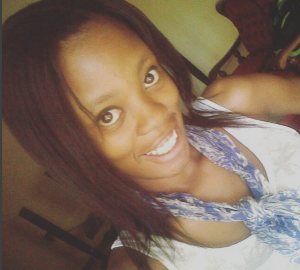 My name is Kearoma Desiree Mosata a 22 year old Mathematics and Statistics student here in Botswana. I am a writer and lover (sometimes hoarder) of novels. I write for ArtsandAfrica.com and Afropress.com. I am also obsessed with Toni Morrison and am hoping to one day sit under a Morula tree and have tea with her.
My name is Kearoma Desiree Mosata a 22 year old Mathematics and Statistics student here in Botswana. I am a writer and lover (sometimes hoarder) of novels. I write for ArtsandAfrica.com and Afropress.com. I am also obsessed with Toni Morrison and am hoping to one day sit under a Morula tree and have tea with her.



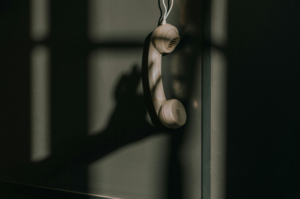
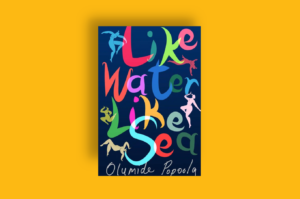
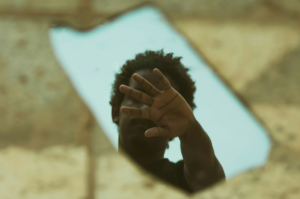
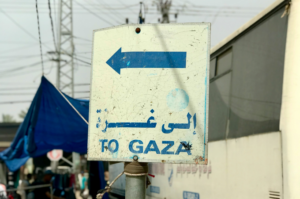
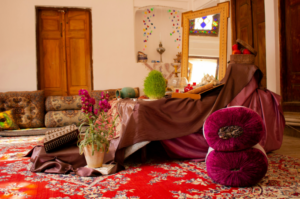
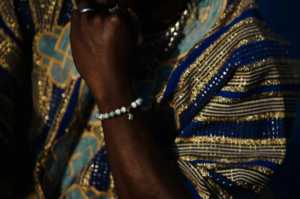

Oratile Setshedi May 27, 2021 13:38
I really enjoyed reading this story, you are such a phenomenal writer. Incorporating Setswana words made it so authentic. Ke a leboga. I hope we can meet one day. Batswana need more people like you.